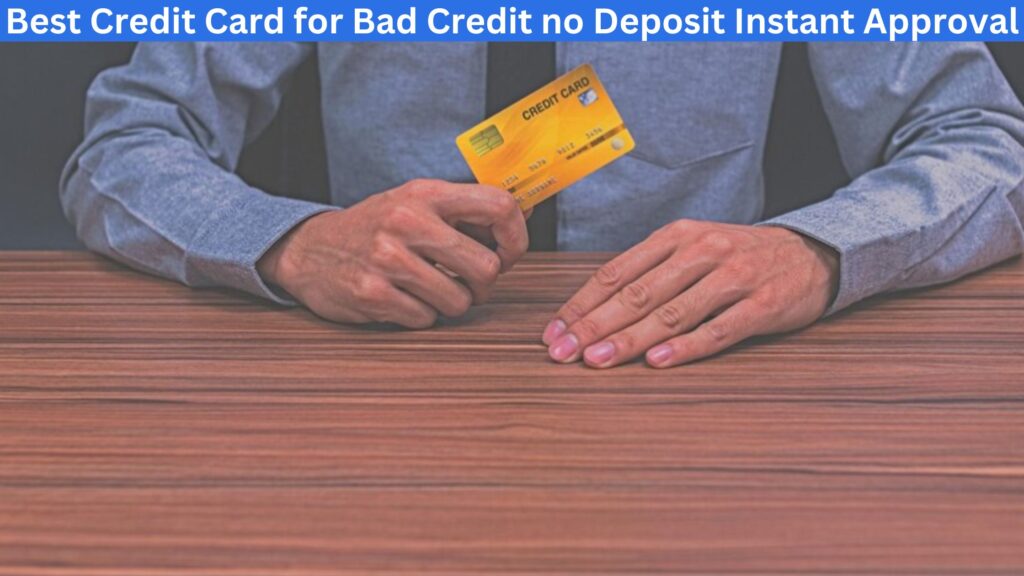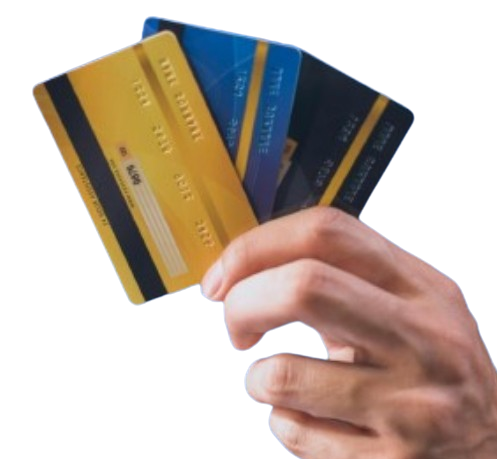
Understanding Credit Cards for Bad Credit
Navigating the world of credit cards can be particularly challenging for individuals with bad credit. This demographic often faces hurdles in obtaining credit, hindering their financial flexibility and opportunities. However, options are available that cater specifically to those with less-than-ideal credit scores. This article will explore the best credit cards for bad credit that offer no deposit and instant approval, providing insights into how these cards work, their benefits, and tips for applying successfully.
What is Bad Credit?
Bad credit typically refers to a low credit score, often below 580 on the FICO scale. This score reflects a history of missed payments, high credit utilization, or defaults on loans. Individuals with bad credit may find it difficult to secure loans or credit cards, as lenders view them as high-risk borrowers. Consequently, they may face higher interest rates and less favorable terms when they do qualify for credit.
The Importance of Credit Cards for Bad Credit

Credit cards can play a crucial role in rebuilding a damaged credit score. When used responsibly, they provide an opportunity to demonstrate financial responsibility through timely payments and low credit utilization ratios. Here are some reasons why obtaining a credit card is beneficial for those with bad credit:
- Credit Building: Regular use of a credit card and timely payments can gradually improve your credit score.
- Financial Flexibility: Having access to a line of credit can help manage unexpected expenses without relying on high-interest payday loans.
- Rewards Programs: Some cards offer rewards or cash back on purchases, allowing users to benefit from their spending.
Types of Credit Cards Available
- Unsecured Credit Cards: These do not require a security deposit. They are harder to obtain for individuals with bad credit but may offer better terms than secured cards.
- Secured Credit Cards: These require a cash deposit that serves as collateral. The deposit amount typically determines the credit limit. While they are easier to obtain, they require upfront cash.
- Instant Approval Cards: Many issuers now provide instant approval decisions through online applications, allowing users to know their status quickly.
Best Credit Cards for Bad Credit with No Deposit and Instant Approval

Here are some top options for individuals seeking no deposit, instant approval credit cards:
1. Credit One Bank® Platinum Visa® for Rebuilding Credit
- Overview: This card is designed for individuals looking to rebuild their credit while earning rewards.
- Key Features:
- No security deposit is required.
- Offers 1% cash back on eligible purchases.
- Monthly reporting to all three major credit bureaus.
- Eligibility: Generally available to those with poor or limited credit history.
2. Petal® 2 “Cash Back” Visa® Credit Card
- Overview: A unique card that considers banking history instead of traditional credit scores.
- Key Features:
- No fees whatsoever (including late fees).
- Offers up to 1.5% cash back on purchases after making 12 on-time payments.
- Instant decision upon application.
- Eligibility: Designed for those with limited or poor credit history.
3. Capital One QuicksilverOne Cash Rewards Credit Card
- Overview: This card is ideal for those looking to earn rewards while rebuilding their credit.
- Key Features:
- No deposit is required.
- Offers unlimited 1.5% cash back on every purchase.
- Access to a higher credit line after making your first five monthly payments on time.
- Eligibility: Available for individuals with average or fair credit.
4. Indigo® Platinum Mastercard
- Overview: A straightforward option for those seeking an unsecured card without a security deposit.
- Key Features:
- Prequalify without affecting your credit score.
- Reports to all three major bureaus.
- No annual fee (for many applicants).
- Eligibility: Targeted at individuals with bad or limited credit.
Factors to Consider When Applying
When applying for a no-deposit, instant-approval credit card, consider the following factors:
- Credit Score Range: Know your current score and apply for cards that cater specifically to your range.
- Prequalification Options: Many issuers allow you to check if you prequalify without impacting your score, which can help you avoid unnecessary hard inquiries.
- Fees and Interest Rates: Be aware of any potential fees associated with the card (annual fees, late payment fees) and the interest rates applied to balances.
Steps to Improve Your Chances of Approval
- Check Your Credit Report: Review your report for any inaccuracies or fraudulent activities that could be negatively impacting your score.
- Reduce Existing Debt: Lowering your overall debt load can improve your debt-to-income ratio and make you more appealing to lenders.
- Limit Applications: Applying for multiple cards in a short period can hurt your score; space out applications when possible.
Conclusion
Finding the best credit card for bad credit that offers no deposit and instant approval is not only possible but also essential for rebuilding financial health. By understanding the types of available cards, evaluating features carefully, and applying responsibly, individuals can regain control over their finances and improve their credit scores over time. Remember that while these cards provide immediate access to funds, they should be used wisely to maximize benefits and minimize potential pitfalls associated with poor financial management.
Frequently Asked Questions
A second-chance credit card is designed for individuals with bad credit or limited credit history, allowing them to rebuild their credit without requiring a security deposit.
Yes, there are unsecured credit cards available for those with bad credit that do not require a security deposit, such as the Capital One Platinum Credit Card and the Petal® 1 Visa® Credit Card.
Many issuers offer instant approval decisions for applicants with bad credit, but approval is not guaranteed. It’s advisable to check eligibility criteria beforehand.
Look for cards with low or no fees, reasonable interest rates, and those that report to all three major credit bureaus. Additionally, consider whether you want rewards or simply a tool to rebuild your credit.
Some second-chance cards may have annual fees ranging from $0 to $125, depending on the issuer and card type. Always read the terms carefully before applying.
Make sure your application is complete and accurate, maintain a stable income, and consider applying for a card from your primary bank if you have an established relationship with them.
Yes, many issuers allow you to upgrade to better cards as your credit improves, which can help you transition from high-fee options to more favorable terms over time.
Disclaimer:
The information provided on this blog is for general informational purposes only and does not constitute financial advice. While we strive to present accurate and up-to-date content, credit card terms, conditions, and offers are subject to change at the discretion of the card issuers. Readers are encouraged to thoroughly review and verify all terms before applying for any credit card.
